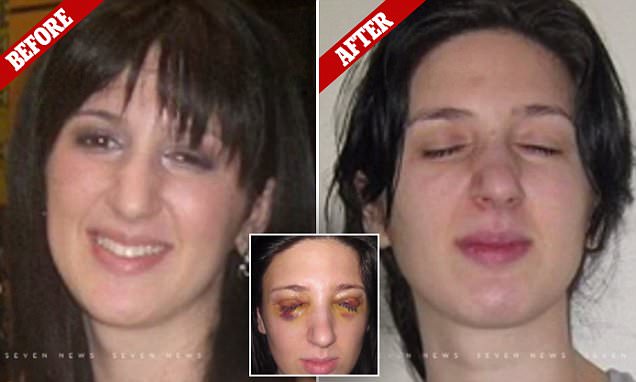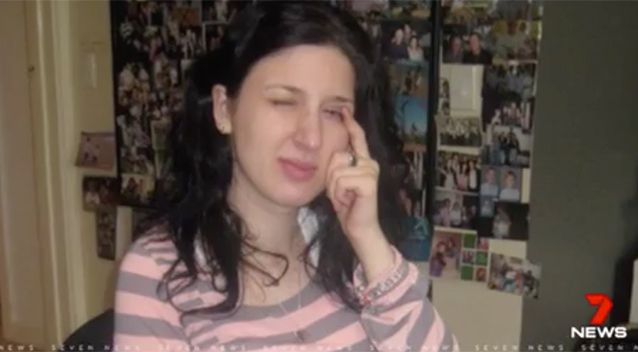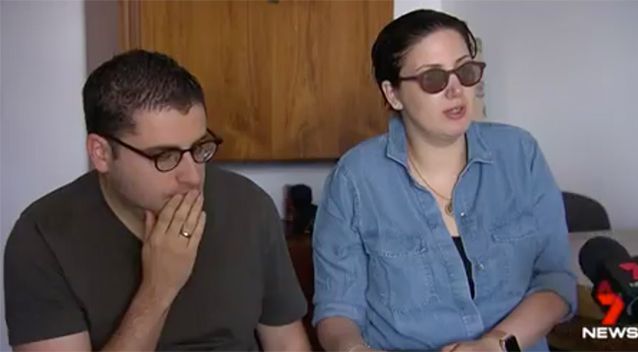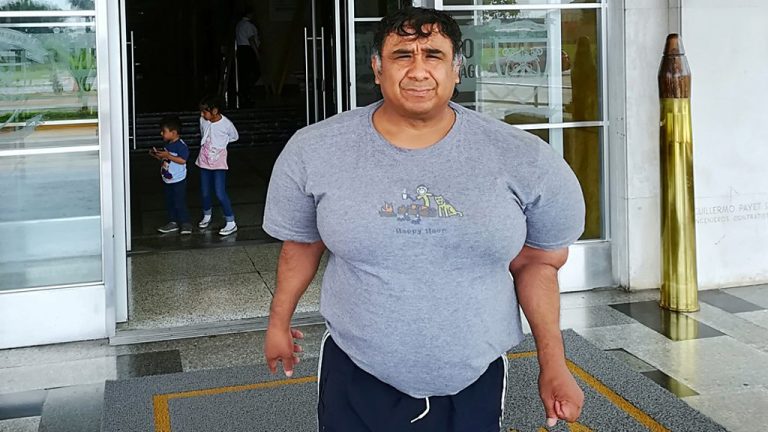For the past 13 years, Natalie Adler, of Melbourne Australia, has been battling a strange medical condition that causes her eyelids to close for up to three days at a time, rendering her completely blind. After countless tests and procedures, doctors still don’t have a proper diagnosis.
Natalie’s life changed dramatically one seemingly normal Sunday, when she was 17-years-old. She just woke up with extremely swollen eyelids and her eyes soon started closing intermittently for various periods of time. In a few weeks time, they were closing for three days, followed by three normal days, and she found herself having to get used to the unusual routine, because doctors could not figure out what was wrong.

Photo: 7News
“Natalie’s a mystery. She’s a one-off, we don’t have a diagnosis,” Associate Professor Justin O’Day, head of the hospital’s neuro-ophthalmology unit at the Royal Eye and Ear Hospital in Melbourne, told reporters, in 2008, when Adler’s strange case first made international news headlines. Fast forward to present day, after hundreds of tests and medical procedures, and doctors are just as puzzled by her condition.
“Something happens overnight on the third night. I go to bed and I can open my eyes, and then when I wake up the next day I can’t. Nobody knows why,” 30-year-old Natalie said. “I don’t have an overall diagnosis.”

Photo: 7News
During her “closed eyes days”, the Australian woman’s are completely clamped shut, except for a small slit in her left eye, and she can’t do anything about it. She has undergone several unsuccessful surgeries over the years, and is now classified legally blind, after having 99% of the muscles in her eyelids removed, to prevent them from closing shut. Still, she relies on constant Botox injections to keep her eyes at least partly open, but says that blindness still occurs at least once per month.
What makes Natalie’s case so hard to crack is that it seems to be the only one of its kind in the world. She has seen over 40 specialists in the past 13 years, but no one has been able to find an explanation, let alone a cure.

Photo: 7News
“It’s hard. We’re trained to look for an answer. It’s certainly a team effort. At various times I’ve had close contact with her neurologist and cardiologist,” Dr Mark Berzsenyl told 7News.
Natalie Adler says that “every day is a battle”, but, luckily, she has the complete support of her husband when it all becomes too much to bear. “He’s my knight in shining armor, he’s brought me back from the brink,” she said.
Ms. Adler has recently been enrolled in a genetic research program at the Royal Melbourne Hospital, which everyone hopes will help specialists finally crack the mystery of her condition.












